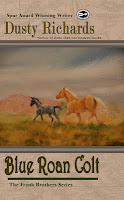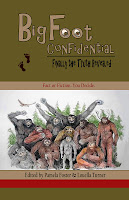When we started our High Hill Press blog we were initially doing it to promote our authors and their books. But lately we’ve decided we could also use this format to let you know how it works behind the scenes and what you should and shouldn’t do when dealing with queries and submissions and the whole process of getting your book to actual publication. We’ll open this page to comments too. And feel free to ask questions.
Here’s a bullet point list of things that you should never do. (And FYI, I’ve had all of these things happen to me, or to a friend.)
· Never, ever, push your manuscript under the bathroom stall and tell an editor it will only take them a minute or two to read the first chapter.
· Never chase an editor down a hall while jabbing your finger into their back and yelling “Hey, Miss. Miss. I need to talk to you about my book!”
· Don’t stand across the room from an editor and perform a Vulcan mind meld in the hopes that you can get them to read your manuscript.
· Don’t interrupt an editor in the hall if she is talking to someone already. Would you want someone to interrupt your time with her?
· Don’t send an e-mail to an editor to ask about the query you sent a day ago, or a week ago, or a month ago, or even 4 months ago. If you haven’t heard from an editor after 6 months, it’s perfectly acceptable to write a polite e-mail asking if they’ve found time to look over your query, but not one day before then.
· Don’t send an unsolicited manuscript. It doesn’t matter that you thought you’d save some time, or that you knew they’d like it so you sent the whole thing, or a friend told you since it was a “small press” you didn’t have to query first.
· Never call an editor to discuss your query. And never call them to ask if they’ve received your query. In the query stage, put your number on your correspondence and let the editor know it’s okay for them to call you if they have any questions. Also give them the best times to reach you.
· If you are asked to send chapters, or an entire manuscript, send it exactly the way the editor asked for it. And while you’re at it, take the time to learn about formatting. If an editor requests a manuscript, there is nothing more aggravating than one that isn’t formatted properly. You can find formatting guidelines anywhere, but later we’ll post them on this blog.
· If an editor requests that a manuscript be sent in hard copy, do not send it express with a signature requirement. If they miss mail delivery and have to drive to the post office to sign for your manuscript, they aren’t going to be too happy. And there’s nothing worse than starting off an editor/author relationship when one of you isn’t happy.
· If an editor asks for three chapters, don’t send the whole thing saying that they can’t get the complete story without reading it all at once. Don’t say you sent five chapters because the real action doesn’t start until then. Send three chapters and not one word more. If you’re book doesn’t get exciting until chapter five, then perhaps you should delete the first four chapters. Do not send anything else unless the editor asks for it. Don’t send sketches of the way you see your characters. Or the world they live in. Or your vision of the cover.
· Lately, one of our pet peeves is the bio. Bios should be written in third person. Never in first person. There is no I. There is only she or he. When we get a bio that starts out with “I’ve been writing my whole life.” We cringe because we’re almost positive the author has either not been around the writing world very long, or hasn’t paid much attention to how things are done. It should always read, “Stephen King has been writing his whole life.”
Just remember that this whole business is like playing the lottery. You aren’t going to win unless you buy a ticket. But there are rules. You wouldn’t print off your own lottery ticket and if your numbers are drawn expect to win. You have to do it the way they expect you to. So if you want to win the “Big Publishing Lottery” play by the rules. And if you don’t know those rules, then you either haven’t been attending conferences, or you weren’t paying attention when you did. Don’t expect an editor to make an exception for you because you don’t have time to participate in a workshop, or conference, or read a writing how-to book. It’s not as hard as you might think to become familiar with the way this business runs, you just have to try.












 Just a hint...this is what I want to look like.
Just a hint...this is what I want to look like.



